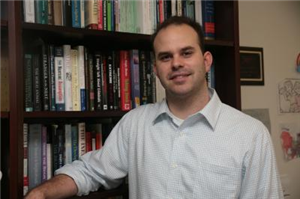- Main page
- News
AMERICAN CRIMINOLOGIST TEACHING PHD STUDENTS AT KAZNU
3/11/2022
For thirty years of Independence, Al-Farabi Kazakh National University has become a flagship among Kazakhstani higher educational institutions. KazNU scientists have enriched domestic science with new, truly fundamental research. Trips of our scientists abroad, invitations of foreign scientists to give lectures have become commonplace. During this time, the university has trained hundreds of PHD doctors, scientists of the new formation of our independent country. Students, undergraduates and doctoral students of KazNU participate in scientific projects, develop in step with the times, make their contributions to turn their alma mater into a research university. New curricula have been opened, modern educational trajectories have been introduced, groups with English as the language of instruction have been opened.
The educational paradigm has changed radically, since all training is based on the priority of competencies. Now the university faces new ambitious tasks - to develop the scientific base of the university, to attract foreign scientists. KazNU uses the results of breakthrough research and technologies, and analyzes the achievements of university scientists at the world level. One of the invited scientists at Al-Farabi KazNU is the American criminologist Kevin Michael Beaver. Since 2020, he has been advising doctoral students of the Faculty of Law on writing doctoral dissertations and is actively involved in their research work in the field of criminal law, criminology and criminal procedure.
Dr. Kevin M. Beaver is a native of Cleveland, Ohio, USA. Kevin M. Beaver attended Ohio University from 1996 to 2000 and graduated with a bachelor's degree in sociology. In 2001, he received a master's degree in criminal justice from the University of Cincinnati, Ohio with a master's thesis on "The Impact of Marriage, Employment, and Education on Marijuana Quit: Exploring the Impact of Life Change." Also in 2006, Kevin M. Beaver received his Ph.D. in criminal justice from the University of Cincinnati. The doctoral dissertation was on the topic "The Intersection of Genes, Environment, Crime and Offenses: A Longitudinal Study of Offenses". In 2006, he was hired as a lecturer in the Department of Political Science and Criminal Justice at Northern Kentucky University. In the same year, he was accepted as an assistant professor at Florida State University, and in 2010 he became an associate professor. Kevin M. Beaver is currently an American criminologist and professor of criminology at Florida State University's College of Criminology and Criminal Justice, where he is also director of the distance learning program.
In the 2020-2021 academic year, Kevin M. Biver taught at the Department of Criminal Law, Criminal Procedure and Forensic Science of the Faculty of Law of Al-Farabi KazNU, the discipline “Criminal Procedural Law of the Republic of Kazakhstan (general and special part) for 3rd year students with English as the language of instruction.
He is currently the Editor-in-Chief of the Journal of Drug Issues. It is a quarterly peer-reviewed medical journal covering the side effects of medications, especially illegal drugs. It was founded in 1971 and is published by Sage Publications in association with the University of Florida College of Criminology and Criminal Justice.
Beaver's research explores the biosocial basis of antisocial behavior. He used behavioral genetic and molecular genetic methodologies to uncover the genetic-ecological basis for a range of criminal and criminal outcomes. He was a past recipient of the Ruth Schonl Cavan Young Scientist Award of the American Society of Criminology and the National Institute of Justice Postgraduate Fellowship. Beever has published over 314 articles and over 25 book chapters and is the author/editor of over 10 books, including Biosocial Criminology: A Textbook. His research has been published in such diverse journals as the American Journal of Public Health, Biological Psychiatry, Criminology, Developmental Psychology, and Sexual Assault.
A significant part of his work is research in the field of biosocial criminology, including research on the causes of antisocial behavior, he also investigated the relationship between parental behavior and children's intelligence, as well as the potential for genetic factors to contribute to the academic performance of children. His research also found a link between a rare form of the MAOA gene (known as the "warrior gene") and aggressive behavior and gun use among boys.
He has published articles in international journals, including journals with a high impact factor, the h-index is 50 according to the Scopus database. All 314 articles of the author were published in journals with Q1, Q2 quartile. According to the Scopus database, his 4449 publications were cited 7824 times. He is also the recipient of the following awards and scholarships:
To date, Kevin M. Beaver is a foreign consultant for doctoral students of the Department of Criminal Law, Criminal Procedure and Criminalistics of the Faculty of Law of Al-Farabi Kazakh National University. Advises doctoral students in writing doctoral dissertations and actively participates in their research work in the field of criminal law, criminology and criminal procedure. In addition to motivating doctoral students to engage in scientific activities, Kevin M. Beaver provides mentoring support and indicates the necessary areas of research in order to improve the dissertation and scientific articles.
At the same time, he actively conducts research work with the faculty of the Department of Criminal Law, Criminal Procedure and Criminalistics of the Faculty of Law of Al-Farabi Kazakh National University. As a result, more than 12 scientific articles have been published in scientific journals with the Q1, Q2 quartile on various topical issues in the field of criminal law, criminal procedure and forensic science.
Kevin M. Beaver with the faculty of the department and doctoral students is doing a lot to ensure that Kazakhstan becomes an open modern society, to create a criminal law basis for a more active inclusion of the country in the controversial, but objective and inevitable process of globalization.
Kairzhan TUREZHANOV

